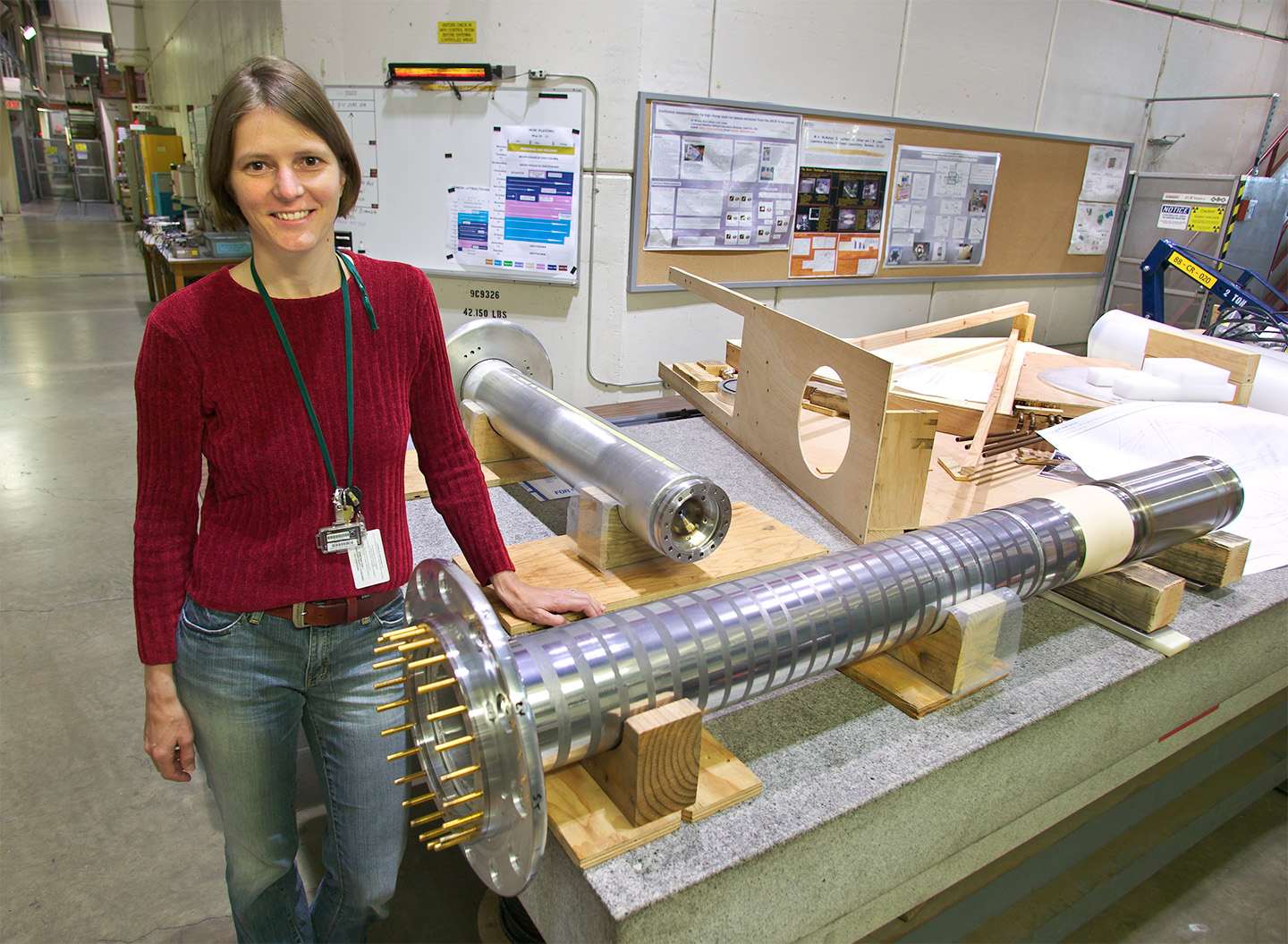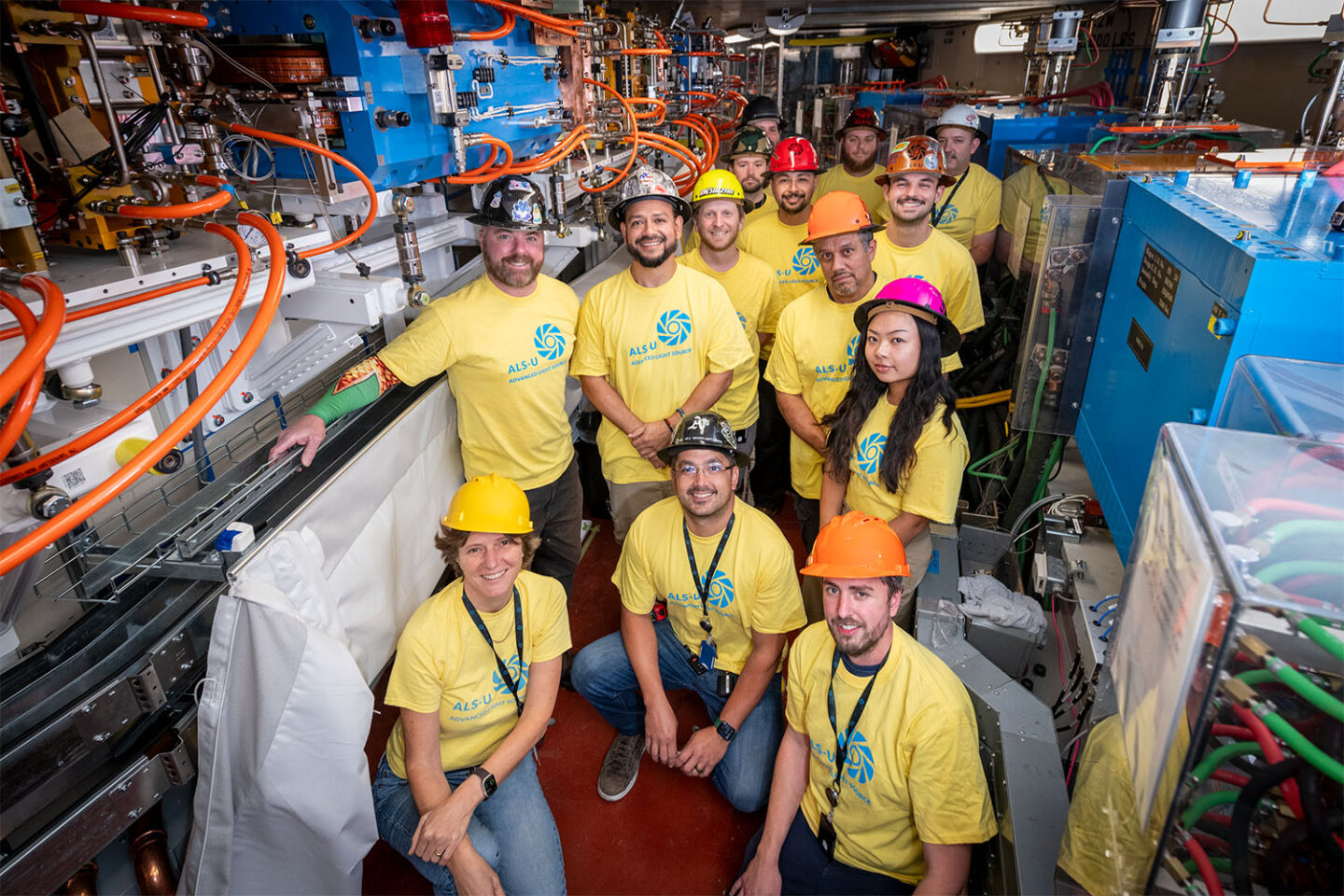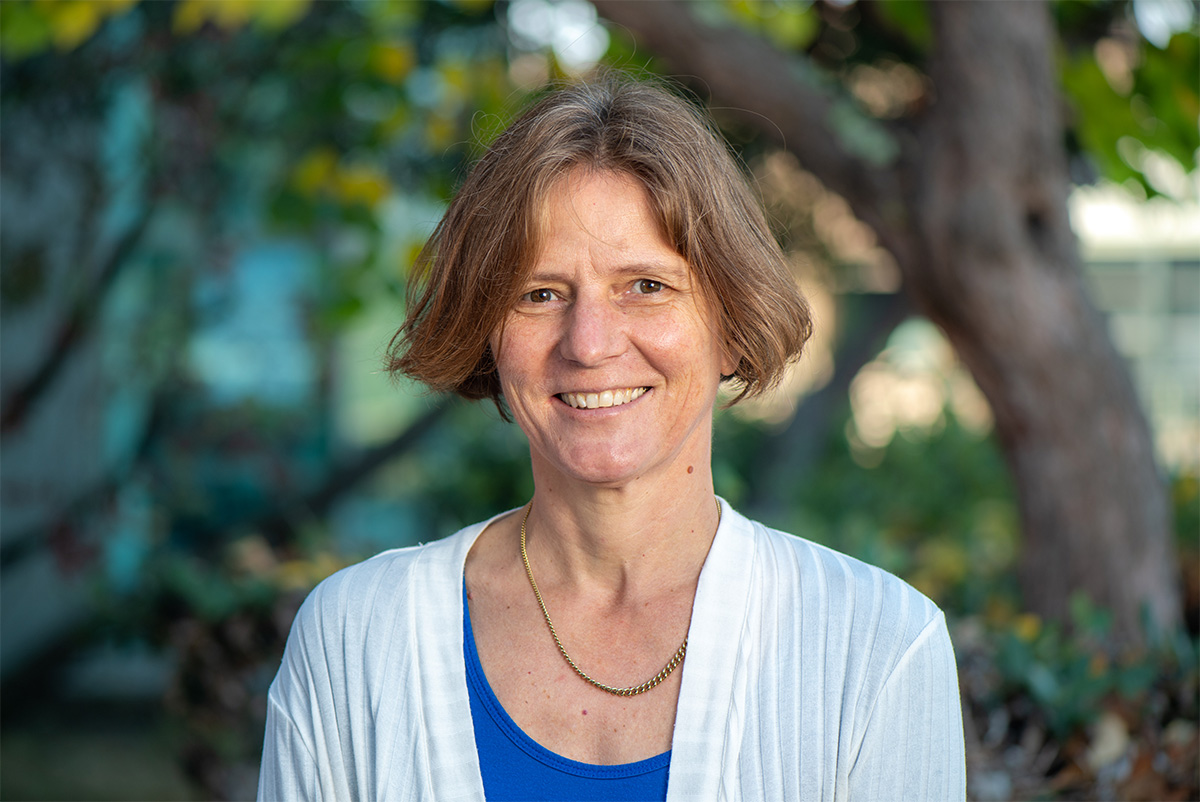Following an international search, Lawrence Berkeley National Laboratory (Berkeley Lab) has named Daniela Leitner, a leader in the development of heavy ion injectors and rare isotope accelerators, and the Engineering Division’s current Deputy for Science, as the next Engineering Division Director and the Laboratory’s Chief Engineer. Leitner’s new role is effective October 1, 2024.
Leitner’s research has focused on the development of high-performance electron cyclotron resonance (ECR) ion sources and heavy ion accelerators. She received her Ph.D. in physics from the Vienna Technical University in 1995 and first came to Berkeley Lab as a postdoctoral fellow in the Accelerator and Fusion Research Division (now the Accelerator Technology and Applied Physics (ATAP) Division) in 1996. Her work in electron cyclotron resonance (ECR) ion source development led to a position with the Nuclear Science Division’s 88-Inch Cyclotron, where she was part of a multidivisional team that developed and commissioned the VENUS Ion Source, the first superconducting ECR ion source optimized for operation at 28 GHz. The VENUS ECR Ion Source continues to be one of the world’s most powerful heavy ion injectors and a standard for most new ECR ion sources being built today.

“I am thrilled that Daniela will be the next Director for the Engineering Division. She brings strong leadership and a compelling vision for the future of engineering at Berkeley Lab. Her scientific and technical strengths and her experience working on projects in several Divisions will enable her to hit the ground running,” said Natalie Roe, the Associate Laboratory Director for the Physical Sciences Area. “I would also like to thank Ross Schlueter for his excellent leadership as Interim Engineering Division Director while our search for a new Director was concluded.”
“I am excited to take on this new challenge and strengthen our capabilities and ties to our science partners and the engineering community across the laboratories,” said Leitner.
Throughout her career at Berkeley Lab, Leitner has served in high-level research and operations positions in support of user facilities and major projects including DESI, GRETA, the 88-Inch Cyclotron, the LCLS-II, and the ALS Upgrade.
While at Michigan State University from 2010 to 2015, she led the installation and commissioning of the superconducting post-accelerator linac ReA and its experimental hall as part of the Facility for Rare Isotope Beams (FRIB) project and was responsible for commissioning planning of the FRIB facility as well as for the operation of the National Superconducting Cyclotron Laboratory (NSCL). She returned to Berkeley Lab in 2015 to establish and lead a new cross-functional group focused on systems engineering and engineering processes, quality assurance, and project management. The Manufacturing Engineering & CAD Department now engages over 30 engineers who are successfully deployed across the area programs and divisions across the Lab.
Daniela is an active participant in the Physical Sciences Area mentoring program, and she started an Engineering Women and Gender Minorities social hour to support networking for under-represented employees. She has served as Engineering Division Deputy for Science since 2017, and in 2018, she was appointed to lead the ALS-U removal and installation team responsible for removing the old storage ring and installing the new accumulator and new storage rings. In recognition of her contributions to the field of ECR ion sources, she was elected fellow of the American Physical Society (APS) in 2022. She completed the DOE Project Leadership Institute (PLI) program in 2023.

The Engineering Division partners with research and development efforts and collaborates with science divisions in support of projects and programs across Berkeley Lab. As the Laboratory’s Chief Engineer, Leitner will report to the Laboratory Director, providing advice and ensuring the close coordination and advancement of Lab initiatives including safety, diversity, and recruitment. She will also facilitate strategies to develop new tools and capabilities that will benefit the labwide engineering community and their research and operations partners.
“The success of all of our big science projects relies on excellent engineering, and I count on the Chief Engineer to help us maintain that level of excellence across the Lab. Daniela has the perfect experience and expertise for this job, and I am looking forward to working with her in this new role,” said Berkeley Lab Director Mike Witherell.
Leitner plans to continue the Lab’s commitment to world-leading research and engineering expertise through the Division’s diverse, multidisciplinary teams. She is a strong advocate of career development and mentoring opportunities for all employees, empowering them to contribute effectively to novel project requirements and to facilitate world-leading scientific discoveries.
Berkeley Lab’s Engineering Division has an established history of leadership and innovation across all areas of the Lab’s research portfolio. Comprised of over 450 scientists, engineers, technicians, machinists, and operations professionals, the Division’s matrixed staff contribute directly as key collaborators to enable the success of many large-scale Berkeley Lab-led projects. The Division also builds specialized instrumentation for projects at Berkeley Lab and other national labs (including SLAC and Fermilab) and for international projects including ATLAS and the High-Luminosity Large Hadron Collider (HL-LHC) at CERN.
###
Lawrence Berkeley National Laboratory (Berkeley Lab) is committed to delivering solutions for humankind through research in clean energy, a healthy planet, and discovery science. Founded in 1931 on the belief that the biggest problems are best addressed by teams, Berkeley Lab and its scientists have been recognized with 16 Nobel Prizes. Researchers from around the world rely on the Lab’s world-class scientific facilities for their own pioneering research. Berkeley Lab is a multiprogram national laboratory managed by the University of California for the U.S. Department of Energy’s Office of Science.
DOE’s Office of Science is the single largest supporter of basic research in the physical sciences in the United States, and is working to address some of the most pressing challenges of our time. For more information, please visit energy.gov/science.
